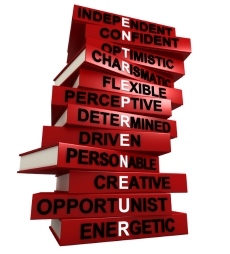28 Mar How resilient are you in the face of breakdown?
At the beginning of my seminars I ask attendees to share what they want to create as a result of participating.People say things like, “get a new job” or “find my soul mate” or “earn more money,” “get healthy” or “lose weight.” What I find interesting is that for the most part the things they want to create are already within their reach. Take the topic of being healthy for instance. Everyone knows how to lose weight, right? Eat less, exercise more. But if it were that straightforward (I won’t say easy) wouldn’t everyone be healthy?
There are many circumstances in life that lead people to making commitments for change. They might decide they don’t like how they look, or that they can’t walk up a set of steps without huffing and puffing, or maybe a doctor is urging them to change their ways. It might come from a conscious lifestyle choice like going vegetarian or eating gluten-free. Whatever brings them to that choice, there is a moment in which they make the commitment towards a goal. In that pure, clean space, they look out at what they want, and become determined to be, do, or have whatever it takes in order to achieve it. And off they go to make it happen.
I can predict what will come next, 100% of the time. Breakdown! Why? Because they haven’t created it yet, and as long as they don’t have it, they are in breakdown!
In my role as an abundance coach, I spend a lot of hours speaking with people about the breakdowns they encounter. I’ve observed that people who are more successful at achieving their goals tend to have a higher level of what I call “breakdown resilience.” Breakdown resilience has to do with how much you let a breakdown affect you and how you behave in the face of it.
I got the idea of breakdown resilience after watching a TED talk by Brené Brown on the topic of vulnerability. Ms. Brown is a an expert on the topic of shame, and during her years of research she has discovered that some people fare better in the face of shame than others, and that those people share some characteristics that give them what she calls “shame resilience.” Because of their resilience, they are more likely to push through the discomfort that having shame produces.
The same holds true for breakdowns. There is a pervading idea that when a breakdown happens, something is wrong. People make up all kinds of stories about why the breakdown is occurring and what that means. They get discouraged, angry and resistant. They begin to come up with the reasons that it’s not working, such as “I’m not disciplined enough,” “I don’t have enough time/money/talent/fill in the blank,” “I’m lazy,” or “It’s too hard.” Most people will take multiple breakdowns as a sign that they are failing in their endeavor to create what they want. Because of this, people spend all their time trying to avoid being in a state of breakdown. And when the breakdowns keep coming, they give up.
The point at which people stop moving forward when faced with a breakdown varies. Some people get stymied right off the bat, stuck like a deer in headlights, not sure how to even begin after making the initial declaration. Others will try for a while, flounder around a bit but soon after throw up their hands in defeat. Some people push all the way through until they can just see the finish line up ahead, but then they peter out – so close and yet so far. Yet there is plenty of evidence of people who are successful in manifesting what they want because they did not let those breakdowns interfere with their ultimate goals. Those people have breakdown resilience.
Here are some ideas to support you in building up your breakdown resilience:
Welcome the breakdown
Popular culture portrays the value of committing to a goal to be the result you get once you accomplish it. But the real value in making a commitment is precisely so that you can go into breakdown. It’s in the face of a breakdown where the real work gets done – when we can uncover what is standing between us and our goal.
As previously mentioned, if all it took was just deciding to do something and then doing it, we’d all be happily manifesting what we want. But if you’re committing to something that you’ve never done before – getting married for instance – you’re guaranteed to come up against some unfamiliar challenges. How would someone know what it is like to get married if they’ve never had a relationship longer than 6 months? The breakdowns are an opportunity to develop these skills.
Examine your underlying beliefs (as in, it has nothing to do with how disciplined you are)
By welcoming the breakdown you have the opportunity to stop, look, and learn. Instead of trying to fix or get around the breakdown, examine the underlying beliefs that rise to the surface as you are challenged by it. You’ll notice limiting beliefs such as “I’m not smart/ skilled/ motivated/ good/ disciplined/ experienced/ fill in the blank/ enough. Challenging those beliefs creates the space to develop new ones that will actually support you. Contrary to popular opinion, successful people aren’t successful because they’re disciplined. The discipline is a byproduct of the supportive underlying beliefs that were the context for their success.
Side note about creating new supporting beliefs – often we create new versions of our old conversations, which won’t support us either. For example, if you have a belief such as “I’m not enough,” saying “I AM enough” is just creating a different version of the same story. In both cases you are focused on whether or not you are enough. A new belief would be “I am expressing my authentic self the best that I can right now.”
Act as if everything is happening for your good
I never cease to be amazed by how driven people are to applying negativity to their experiences. Even if they don’t know the reason something is happening, they assume the worst. Let’s say you went out on a date, and he/she said they would text you in the next couple of days, and then they didn’t. The majority of people will make up a negative story such as “I guess he/she didn’t like me” and begin to examine what they must have done wrong on the date. Rarely do they say, “they must have lost their phone” or “perhaps they were called away for a family emergency.” And if they never follow up at all then they put them in the pile of all the untrustworthy people out there, proving that there really are no single, straight, available men or women.
Even if you can’t know for certain that everything is happening for your good, your experience of life will change dramatically if you operate as though it is. For every experience that you consider “bad,” stop and consider some aspect of that same experience that was positive. There are always two sides to a story.
Keep going
Don’t use the evidence of breakdowns to bolster a claim that you should quit. Use each experience as an opportunity to practice. Over time you will build up the “muscles” that support you in strengthening your breakdown resilience.
 Have you ever wondered about your own strengths and weaknesses as the “CEO” of your business? I’ve created a quiz that can help you gain insights into your leadership style and areas for growth. It’s a fun way to reflect on your skills and discover opportunities for development. Take the quiz and unlock your CEO potential today! Click here to take the quiz.
Have you ever wondered about your own strengths and weaknesses as the “CEO” of your business? I’ve created a quiz that can help you gain insights into your leadership style and areas for growth. It’s a fun way to reflect on your skills and discover opportunities for development. Take the quiz and unlock your CEO potential today! Click here to take the quiz.


